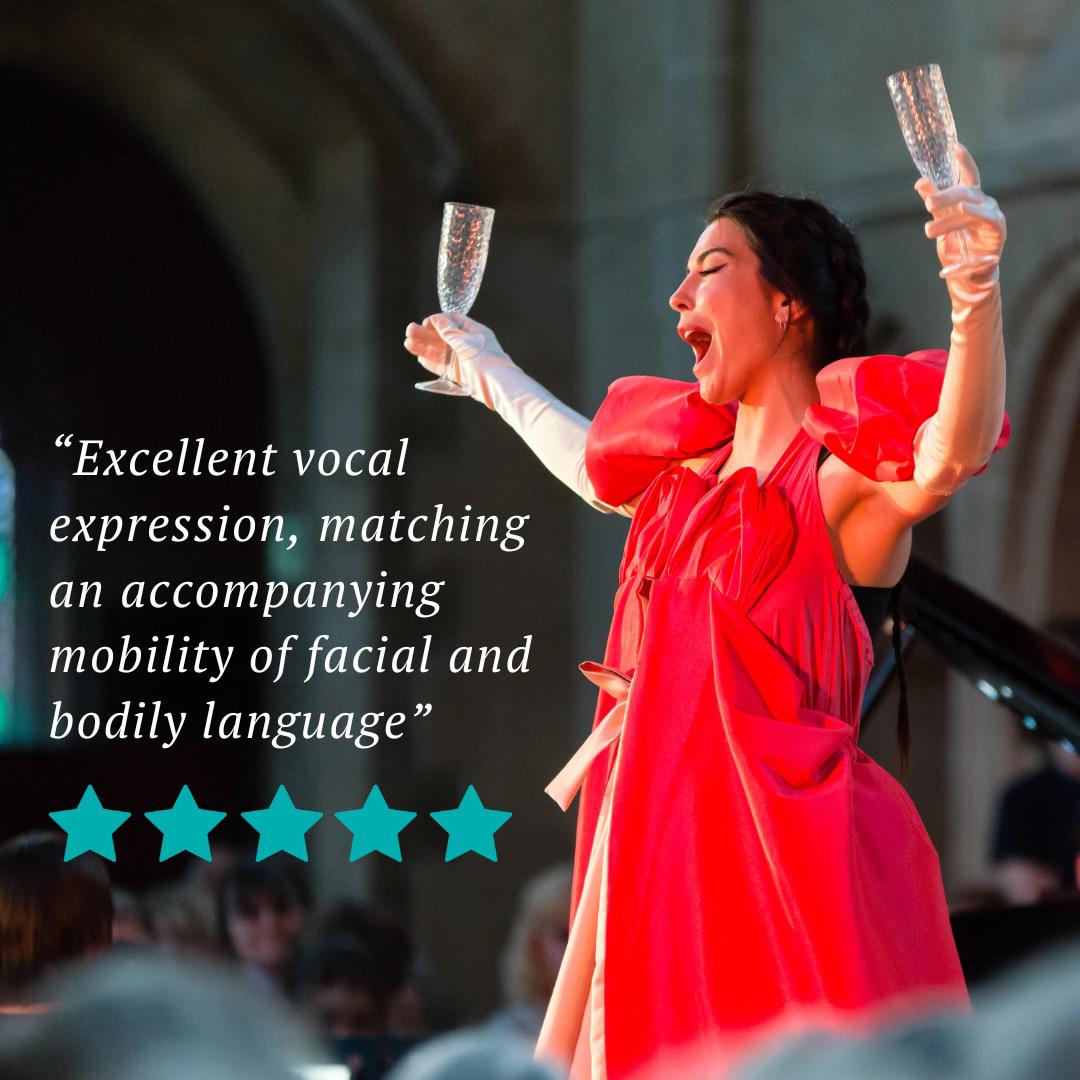Barefoot Opera’s production of La Traviata, this time staged at St Michael and All Angels Church in Brighton, was a gorgeously refreshing take on Verdi’s classic opera that a lot of us know and love.
Known for their innovative and accessible performances, Barefoot Opera created a modern and intimate take on Verdi’s timeless story of love, the complexities of societal expectations, and most of all, heartbreak.

The church setting, with its beautiful architecture and amazing acoustics, added something special to the already top-notch performance, pulling on my heartstrings even more. If I didn’t know any better, I might have thought it was a site-specific production because of how well and smoothly the piece ran.
The role of Violetta, played by soprano Beren Kader Fidan, was, in my opinion, the emotional heart of the production. From her opening, it was clear that she was fully immersed in this heroine role, balancing strength with tragedy and vulnerability. Fidan’s transformation from a carefree girl who thrived at night to a heartbroken woman so torn apart by love and sacrifice was spellbinding. She truly captured the depth of Violetta’s struggles so well.
Playing her lover Alfredo, tenor Tylor Lamani held such a sense of youthful passion and naivety throughout the show that you couldn’t help but get swept into it. His and Fidan’s chemistry was clear, and their scenes together felt so natural that some of them made us all blush. Lamani’s voice was powerful yet so tender, especially in the scenes where he had to bring heartbreak to the surface. His performance was very touching and truly came across as authentic, especially when playing the role of a man caught between family, society, and his almost overwhelming, boyish love for Violetta.

The minimalist staging worked well, with the church as the site for the performance, allowing the focus to remain on the cast and the story. The production relied on the church’s natural atmosphere, which gave the performance an almost stripped-back and raw, intimate feel while still allowing the audience members to feel immersed.
Changes to the lighting guided us through the scenes, switching the mood without any overwhelm, in such a subtle way I wouldn’t even make a note of it at the time as the scenes melted into each other so well. This kind of simplicity made the production feel more grounded.
The small ensemble of musicians gave us a gentle yet powerful accompaniment to the cast and the brilliant choirs. The production’s decision to use a chamber-sized group rather than a full orchestra worked surprisingly well, allowing more room for the fantastic voices to shine. The musicians’ sensitivity to the space and the singers was amazing and ensured that every note felt right.
The church acoustics amplified the already high atmosphere, where it felt like the music was everywhere. The production utilised the space well, with some of the cast singing off-stage.

One of the most notable, lovely aspects of Barefoot Opera’s La Traviata was that they incorporated community choirs and local talent into the show. This added something very unique and real to the production.
By involving schools and community groups from Kent, Sussex, and London, Barefoot Opera successfully made the production an inclusive and collaborative community effort. Not only did this sort of approach allow them to reach more communities, but it also allowed budding talent to perform live and make wonderful memories.
This night was what I would call a firm success, a true balancing act of the traditional approach of Verdi’s work with an inclusive, immersive, and intimate interpretation. La Traviata by Barefoot Opera is not one to be missed.
